Books on the Wall posts featuring “Words Wednesday” book quote graphics. New graphics added every week, so be sure to check back often!
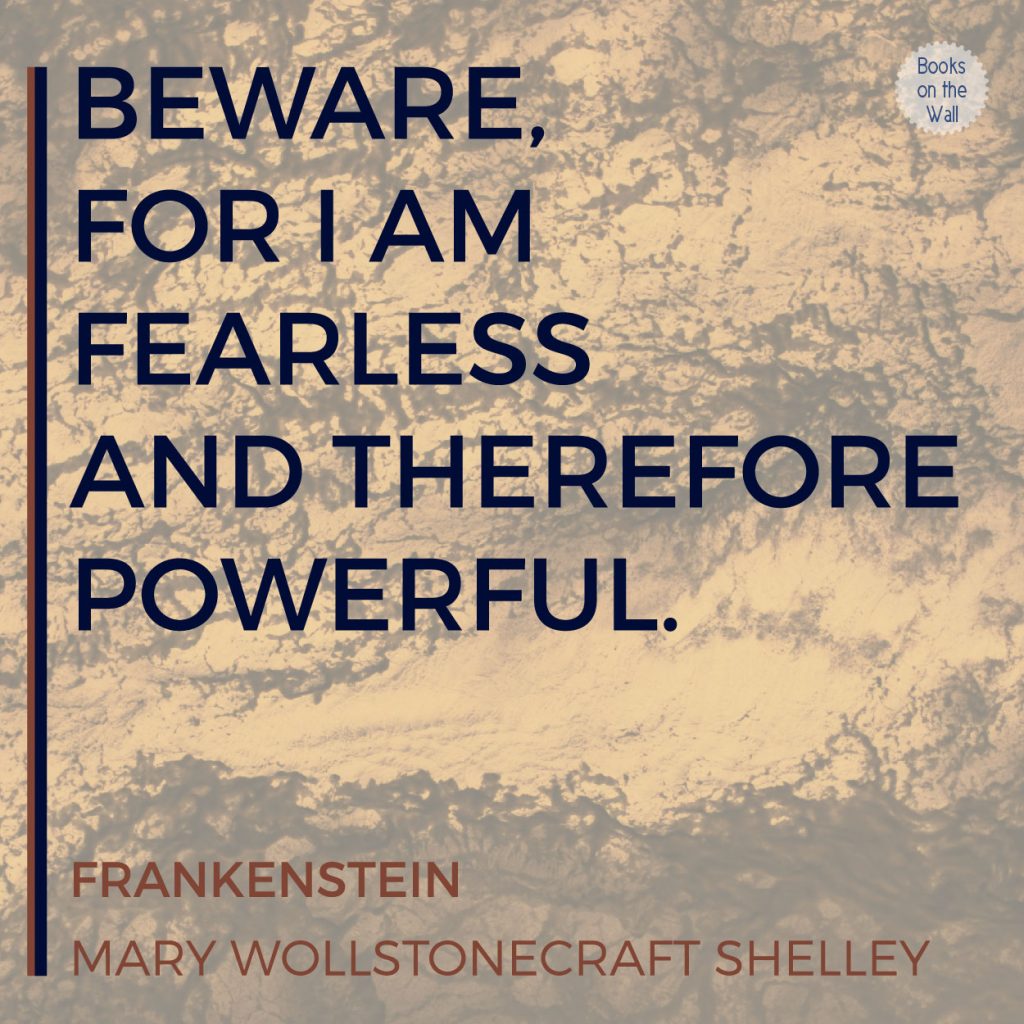
Published in 1818 when Mary Wollstonecraft Shelley was only 20 years old, Frankenstein follows the young scientist Dr. Victor Frankenstein as he mysteriously and miraculously creates life. The resulting monster is often called Frankenstein, though in the novel, he actually no name. Frankenstein is considered to be among the first science fiction novels, blending elements of Romantic and Gothic writing with science and technology. Check out our full-text Frankenstein poster here or at the Books on the Wall Etsy shop! “Beware, for I am fearless and therefore powerful.” Mary Wollstonecraft Shelley, Frankenstein
Continue Reading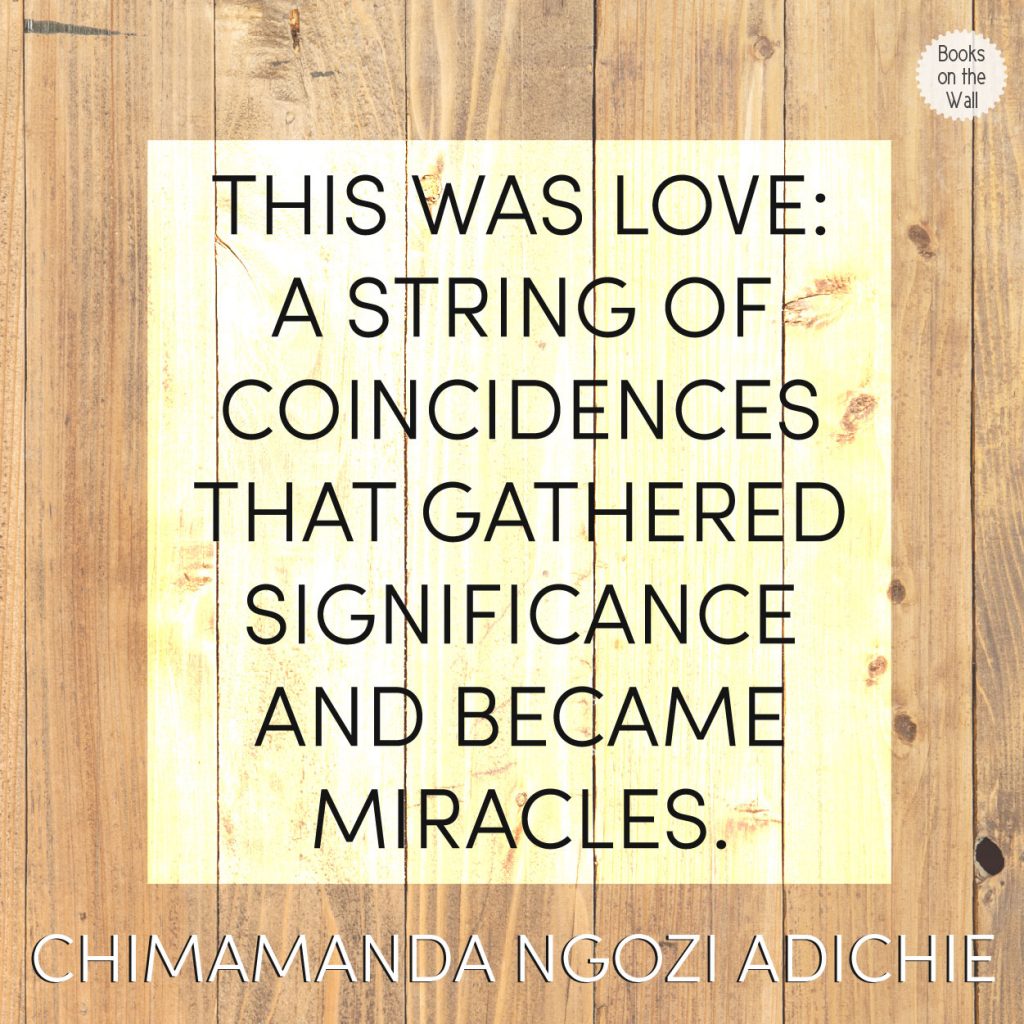
This quote comes from Chimamanda Ngozi Adichie’s Half of a Yellow Sun. Published in 2006, Half of a Yellow Sun follows two Igbo sisters, Olanna and Kainene, as their lives change before, during, and after the Nigerian Civil War (1967-1970). The novel is named after the design on the flag of Biafra, the region that seceded from Nigeria. In 2007, Half of a Yellow Sun won the Orange Prize for Fiction.
Continue Reading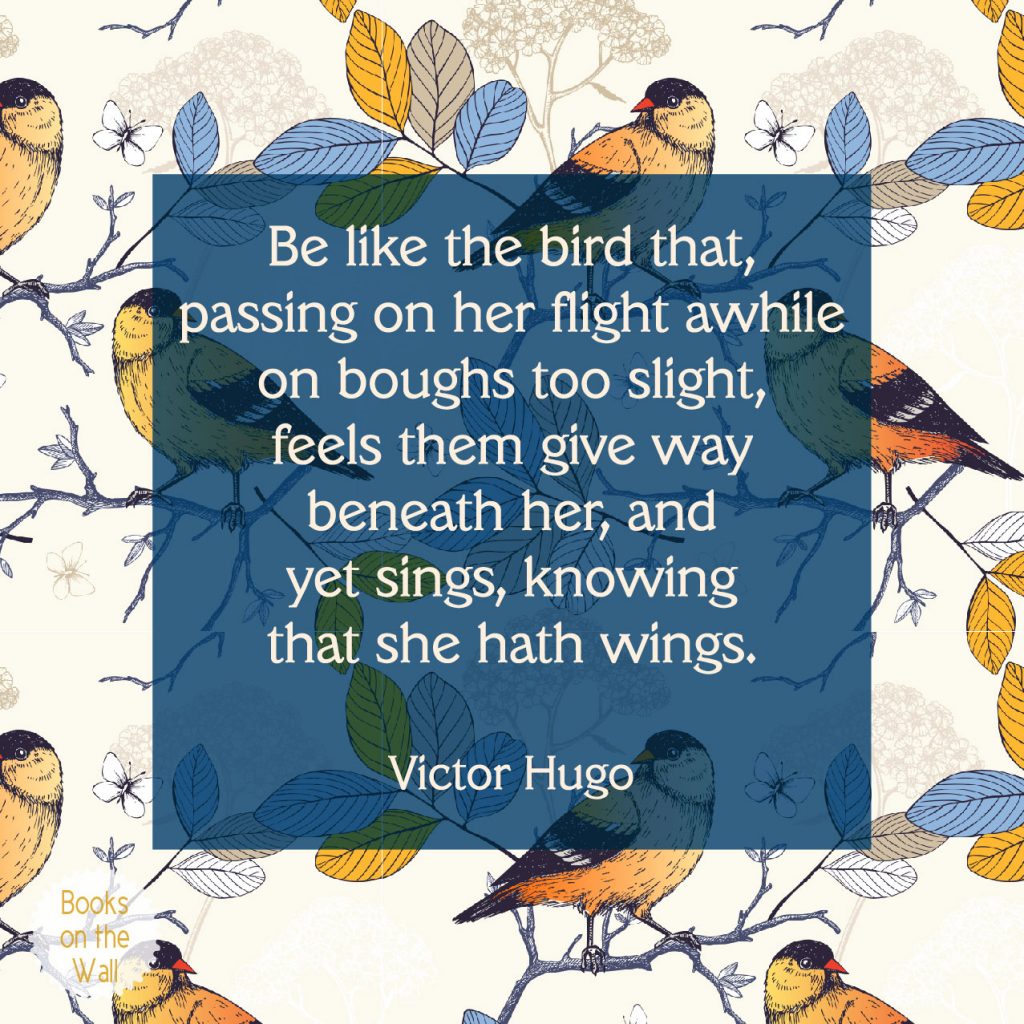
This quote is a translation of one of Victor Hugo’s poems. “Be like the bird that, passing on her flight awhile on boughs too slight, feels them give way beneath her, and yet sings, knowing that she hath wings.” Victor Hugo
Continue Reading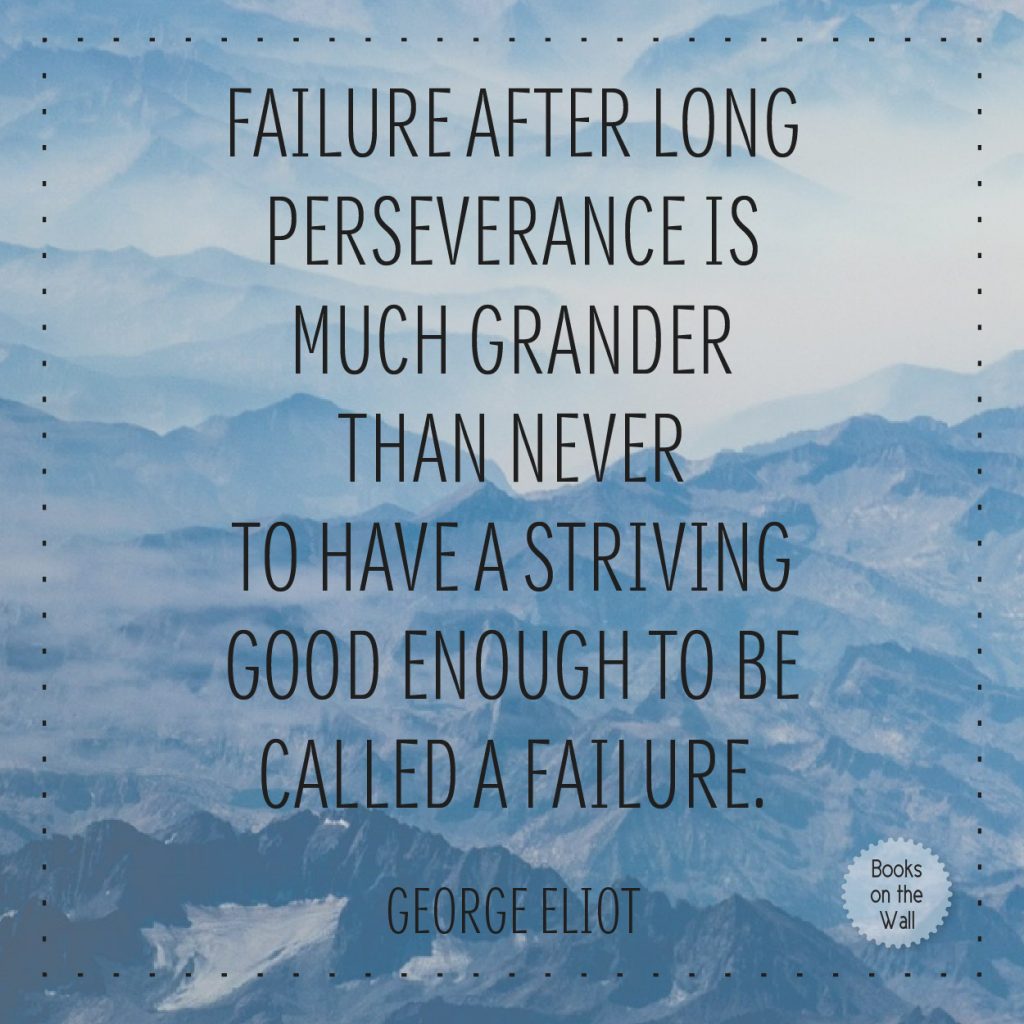
This quote comes from George Eliot’s Middlemarch. Did you know that George Eliot was a woman? “George Eliot” was the pen name of Mary Ann Evans, a British journalist and author. Published in volumes from 1871 to 1872, Middlemarch follows several characters living in the fictional town of Middlemarch. Often considered one of the best novels of all time, Middlemarch deals with many themes common to British literature of that period: societal roles, expectations of women, and the role of marriage. “Failure after long perseverance is much grander than never to have a striving good enough to be called a […]
Continue Reading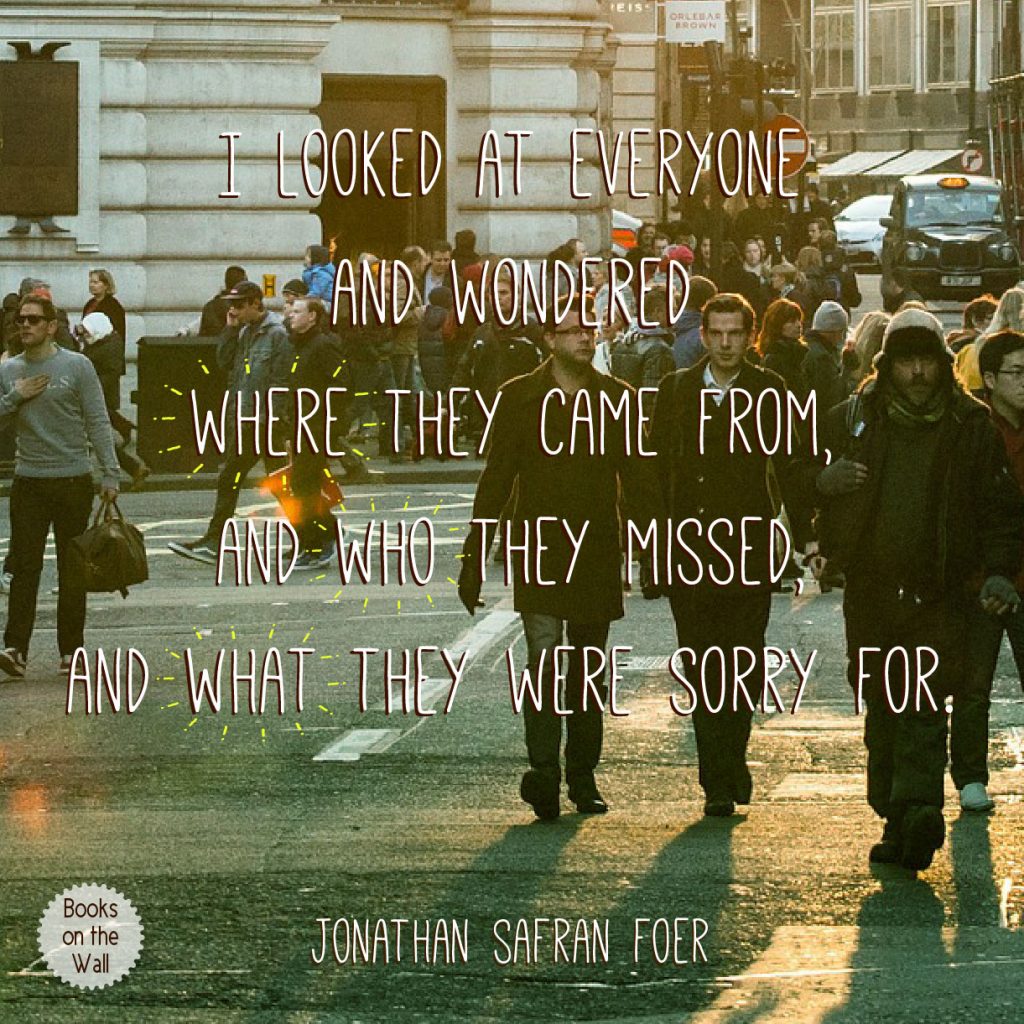
This quote comes from Jonathan Safran Foer’s 2005 novel, Extremely Loud and Incredibly Close. This novel follows the journey of Oskar Schell, a precocious 9-year-old who is searching for clues about his recently deceased father. Extremely Loud and Incredibly Close artfully blends humor and tragedy to explore themes of heritage, identity and loss. Jonathan Safran Foer has recently announced his upcoming novel, Here I Am, to be released in September 2016. “I looked at everyone and wondered where they came from, and who they missed, and what they were sorry for.” Jonathan Safran Foer, Extremely Loud and Incredibly Close
Continue Reading
This quote comes from Toni Morrison’s novel, Beloved. Published in 1987, Beloved follows Sethe, a slave who struggles for freedom from her plantation in Kentucky. Beloved won the Pulitzer Prize for fiction in 1988 and is widely considered to be one of the greatest works of American fiction. “Love is or it ain’t. Thin love ain’t love at all.” Toni Morrison, Beloved
Continue Reading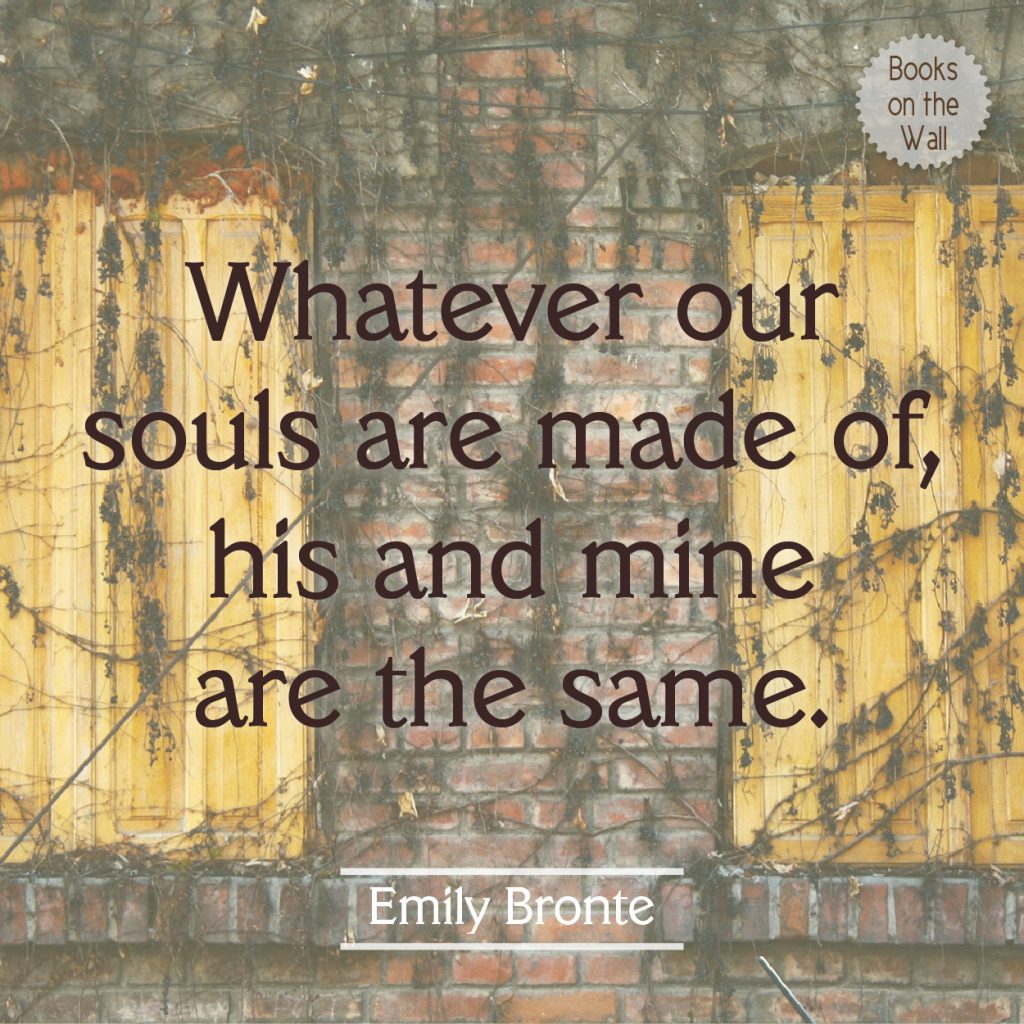
This quote comes from Bronte’s only published novel, Wuthering Heights. Catherine Earnshaw speaks these words to Nelly, her caretaker, about her never-to-be-fulfilled love for Heathcliff. Catherine Earnshaw and Heathcliff remain among the most celebrated and infamous couples in all of Western literature. Need a refresher on the characters and plot of Wuthering Heights? Take a look at our Wuthering Heights character map and family tree. Already an expert on Wuthering Heights? Check out our Wuthering Heights book poster here or at the Books on the Wall Etsy shop. “Whatever our souls are made of, his and mine are the same.” Emily Bronte, […]
Continue Reading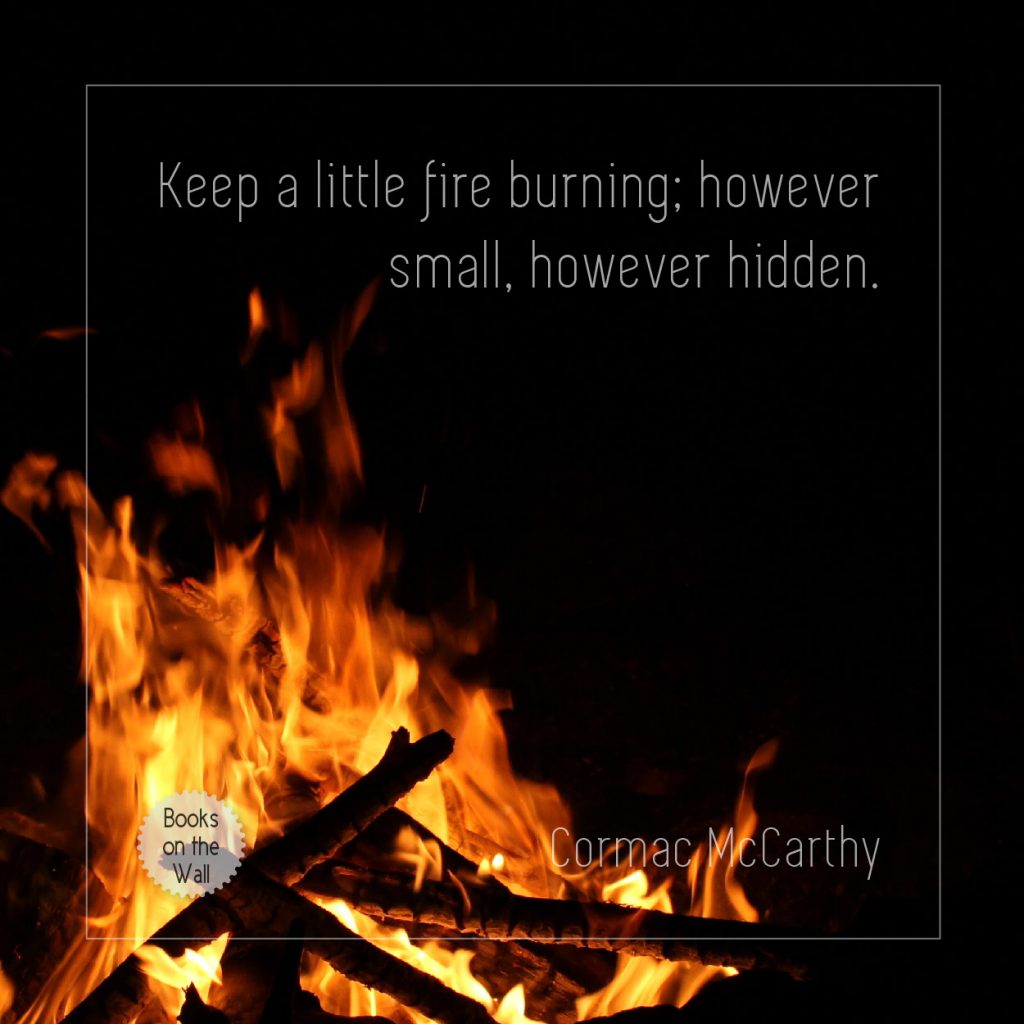
This quote comes from Cormac McCarthy’s 2006 novel, The Road, a post-apocalyptic tale that follows a father and son’s struggle for survival. The idea first came to McCarthy in El Paso, Texas, as he imagined what the city might be like in a bleak future. The novel is dedicated to his son, John Francis McCarthy. “Keep a little fire burning; however small, however hidden.” Cormac McCarthy, The Road
Continue Reading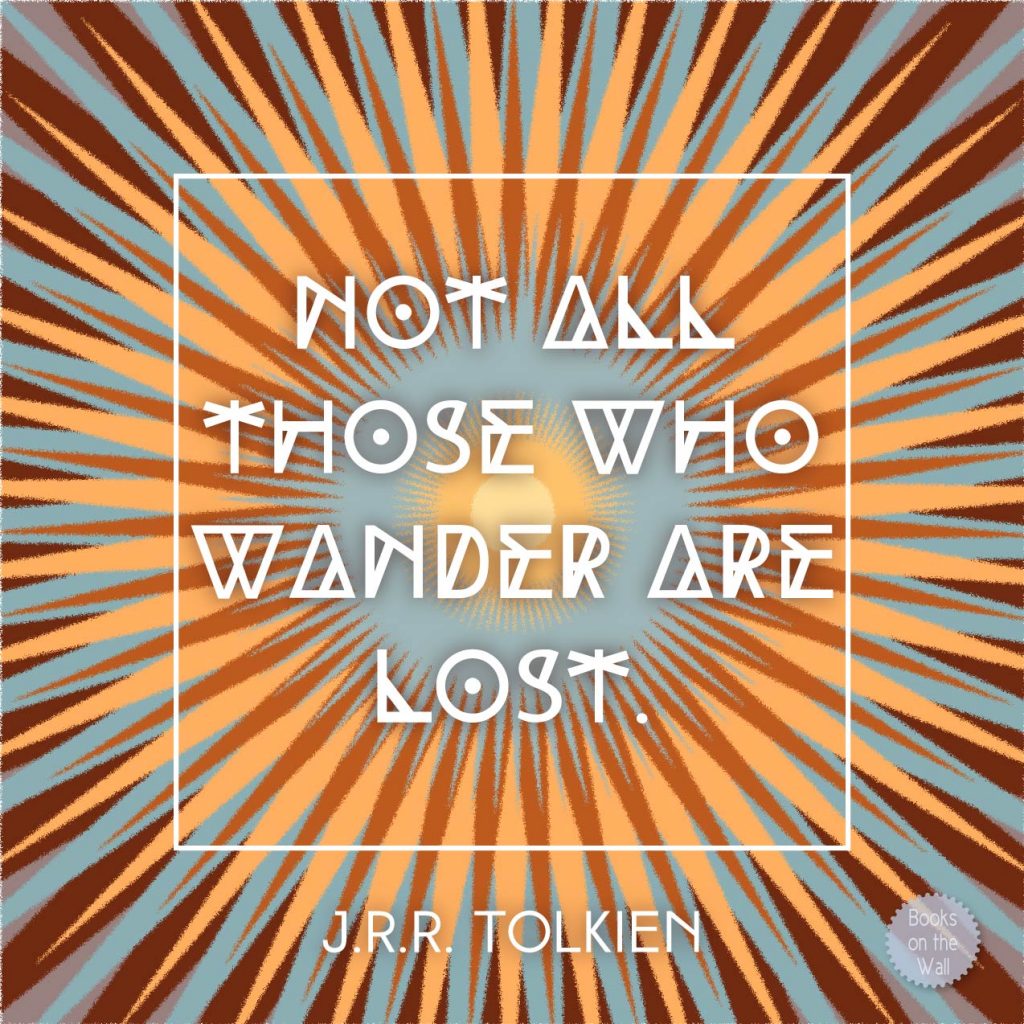
This quote comes from the poem, “All That Is Gold Does Not Glitter,” written by J.R.R. Tolkien for his Lord of the Rings trilogy. All that is gold does not glitter, Not all those who wander are lost; The old that is strong does not wither, Deep roots are not reached by the frost. From the ashes a fire shall be woken, A light from the shadows shall spring; Renewed shall be blade that was broken, The crownless again shall be king. J.R.R. Tolkein, “All That Is Gold Does Not Glitter”
Continue Reading
This quote is taken from Fyodor Dostoevsky’s epic classic, Crime and Punishment. Published in 1866, Crime and Punishment follows main character Raselnikov as he considers the nature of crime, judgment, morality, and the human condition. “To go wrong in one’s own way is better than to go right in someone else’s.” Fyodor Dostoevsky, Crime and Punishment
Continue Reading